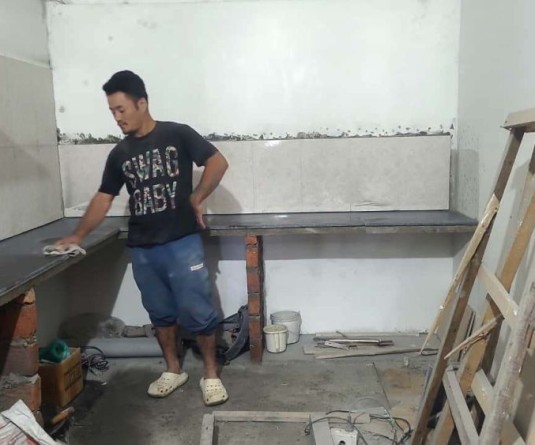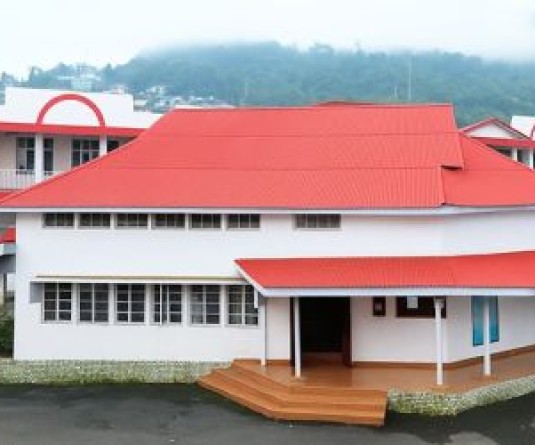1

Kohima, December 3 (MExN): Third day of the ongoing Hornbill Festival began with cultural extravaganza showcasing the rich traditional dances, songs and games of Naga tribes at Heritage Village, Kisama on December 3.
‘Cultural connect’ presented by the Department of Art and Culture Nagaland was graced by special guest Padma Bhusam & Grammy Winner, Pandit Vishwa Mohan Bhatt.
The hosts for the morning cultural event were Minister PHE, Jacob Zhimomi and Advisor IT & Science & Technology New & Renewable Energy, Mmhonlumo Kikon. Advisor Tourism Art & Culture, H Khehovi Yepthomi and Chief General Manager NE IOC Ltd. Mttiya Bhattacharya also attended the event.
The cultural event was performed in two sessions. The tribes that performed in the morning session included Zeliang, Kuki, Yimchungru, Sumi, Rengma, Kachari, Pochury and Chakhesang. Ao, Phom, Konyak, Lotha, Khiamniungan, Garo, Chang and Angami performed in the afternoon session.
The cultural show began with a performance by Zeliang cultural troupe called Herielim (hornbill dance) a tribute to the great hornbill bird and the dance attempts to capture the movements of flocks of excited hornbills feeding on fruits atop the trees.
Kuki cultural troupe performed Savailhun (song & dance) a performance to acknowledge hunter’s valor, bravery and feat.
Sangkusukadi (arrow shooting) was demonstrated by Yimchungru cultural troupe. Archery is a sport played by the Yimchungru tribe and its main purpose was to identify the best marksmen. The game displays the skills of the marksman in hitting the targets accurately. Sangtam cultural troupe performed rothsa nyichi (war dance).This dance is performed when the warriors prepare for battle.
Helo He (game & song) is a folksong sung to encourage cultural traditions and values and was performed by Sumi cultural troupe. While Rengma cultural troupe presented Ngada dance- a dance performed on the 5th day of the Ngada festival where dancers in their full traditional attire move around the village in joyous procession, beginning and ending at the morung.
Baad bheta puja a traditional ritual was performed by Kachari tribe which is a religious practice of Mech kachari. The ritual is performed by setting up a gate like structure made of bamboo which symbolizes as an obstruction to all the evils and epidemics plaguing the community. The rituals are performed in the presence of the community members who pray together for good harvest, health and peace.
Atutu kukhu (Trumpet blowing) presented by Pochury troupe is a wind instrument carved out of a special variety of bamboo. The instrument is blown on three occasions like every evening from men’s dormitories, to ward off wild animals from fields and to alert villagers of eminent attack by enemies in the village. Chakhesang cultural troupe presented ‘thuno kuhuo lizo’ a folk song sung by the men dedicated to women who weave cloth. They express love and admiration for their hard work in producing beautiful cloth.
The afternoon session of the Cultural Connect kick started with the Ao Cultural Troupe performing the Hornbill Dance (Tenem Jilu) which is a traditional dance that depicts the graceful movement of the Hornbill bird as it moves from branch to branch atop the trees. Accompanied by a serenading song, this dance is performed by men and women during “Moatsu” and “Tsungremong”, the premier festivals of the Ao Tribe.
Phom Cultural Troupe performed the Nok-Phat Dance which is a dance performed by warriors donned with shield, dao, spear and headgear while the song accompanying the dance recounts the past events of war, peace, defeat and victory.
The Konyak Cultural Troupe gave a short demonstration of the traditional game called Vee Kok. The Vee is an important forest product which is used for washing and bathing. The game is played by women folk to come together while also to remember the importance of vee and its benefits.
Lotha Cultural Troupe performed the Ematha Shari (Dance of Joy) which is a dance performed by young males during their leisure time after the completion of all domestic chores assigned to them for the day.
Khiamniungan Cultural Troupe demonstrated the traditional way of weaving bags and shawls using the thread obtained from Eh- Kik (stinging Nettle plant).
Garo Cultural Troupe performed the Wangala Dance which is usually performed during the Wangala festival, which is a post harvest thanksgiving festival. Forming two parallel lines, one female and the other male, the dancers dance to the beat of Damma (log drum). The dancers offer thanksgiving to Misi Salijong (Sun God) and in hectic rhythm move to the beat of drums, gongs and the blowing of the buffalo horn. The Chang Cultural Troupe performed the Lakoula Haupu which is an enactment of raiding an enemy village. The raiders try to take as many heads as they can as war trophies. During the raid the defending village takes every precaution to protect the women and children while the able men and warriors defend the village. Angami Cultural Troupe presented a folk tune titled “Howe”, which is sung to convey messages that would express feelings which would otherwise sound disrespectful if spoken verbally. It is sung to depict comparisons among groups: of wealth, status and habits.
The special host for the afternoon session of the cultural connect was Kazheto Kinimi, advisor CAWD/NSDMA.






